
Front_Office_Operations
.pdf
Chapter 9 – Interpersonal and selling skills
Selling skills and techniques
Selling is selling - regardless of whether it is carried out in person by telephone or in writing. Every time you answer a guest enquiry; inform a guest about the attributes services and facilities of the hotel; suggest options for a guest to consider; invite a guest to contact you if they require any further help or information; or ask if you can help a guest with anything else today - you are selling.
4.1 When is the best time to sell facilities and services?
key stages in the guest cycle which lends staff to the selling of facilities and services
●On initial enquiry: ascertaining the requirements and preferences of the prospective guest and offering/highlighting the facilities and services which will be most relevant and appealing
●On booking: discovering the requirements and preferences of the prospective guest, and perhaps offering alternative or additional options that might meet their needs better; or suggesting options if the guest's requirements cannot immediately be met (e.g.. if a particularly date or room type isn't available), rather than simply letting the guest take his request elsewhere.
www.cthresources.com |
Page 511 |
|
www.cthawards.com |

Chapter 9 – Interpersonal and selling skills
Selling skills and techniques
4.1 When is the best time to sell facilities and services? Continued…
●On check-in: informing the arriving guest of facilities and services likely to be useful and appealing during his or her stay; and perhaps taking the opportunity to offer an upgrade to superior (higher rate) accommodation or terms.
●On request: at any time during the guest's stay, if (s)he asks about particular facilities or services, or for recommendations about dining or entertainment options.
●On check-out: asking the guest if the hotel can help with onward bookings (to sister hotels in a chain), or future return bookings.
www.cthresources.com |
Page 512 |
|
www.cthawards.com |

Chapter 9 – Interpersonal and selling skills
Selling skills and techniques
4.2 Product knowledge
Knowledge of the hotel's product starts with comprehensive knowledge of the hotel's rooms (types, sizes, locations, rates, furnishings, fixtures and amenities) - but it doesn't end there. Successful selling requires knowledge of all the additional benefits, services and facilities the hotel can offer or access: car parking, conference facilities, laundry facilities, restaurant, bar, room service, swimming pool, spa or sports facilities, theatre ticket bookings etc..
Details of all these services may be kept handy in a product factsheet, if required for reference. Reception and switchboard should also keep a directory of facilities and services provided by other sales outlets and departments of the hotel, with telephone extension numbers or names of persons to whom any guest queries or reservation enquiries should be referred. (e.g.. Banqueting and conferencing enquiries, are often handled by specialist reservations staff).
A similar directory may be compiled of facilities and services provided outside the hotel, as a value adding information service for guests. If the hotel doesn't have restaurant or sporting facilities, it may be able to recommend providers in the local area, and make enquiries and bookings on a guest's behalf.
www.cthresources.com |
Page 513 |
|
www.cthawards.com |
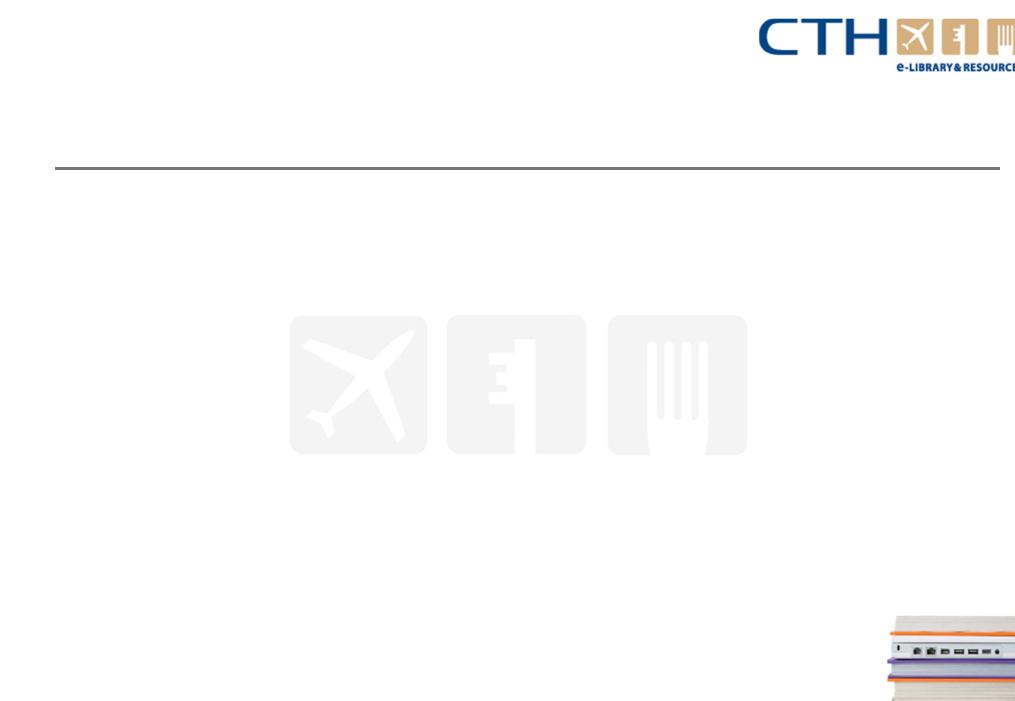
Chapter 9 – Interpersonal and selling skills
Selling skills and techniques
4.2 Product knowledge continued…
In addition to the facilities and services, Front Office staff should determine the hotel's selling proposition - ideally a 'unique selling proposition' or USP. What are the most important attributes or benefits of the hotel, that set it apart from the competition and make it particularly attractive to prospective guests? Is it the under-cover parking? The 24-hour room service? The award winning restaurant? The free in-room Internet access? Know your hotel's USPs - and use them when describing the hotel to prospective guests!
www.cthresources.com |
Page 514 |
|
www.cthawards.com |
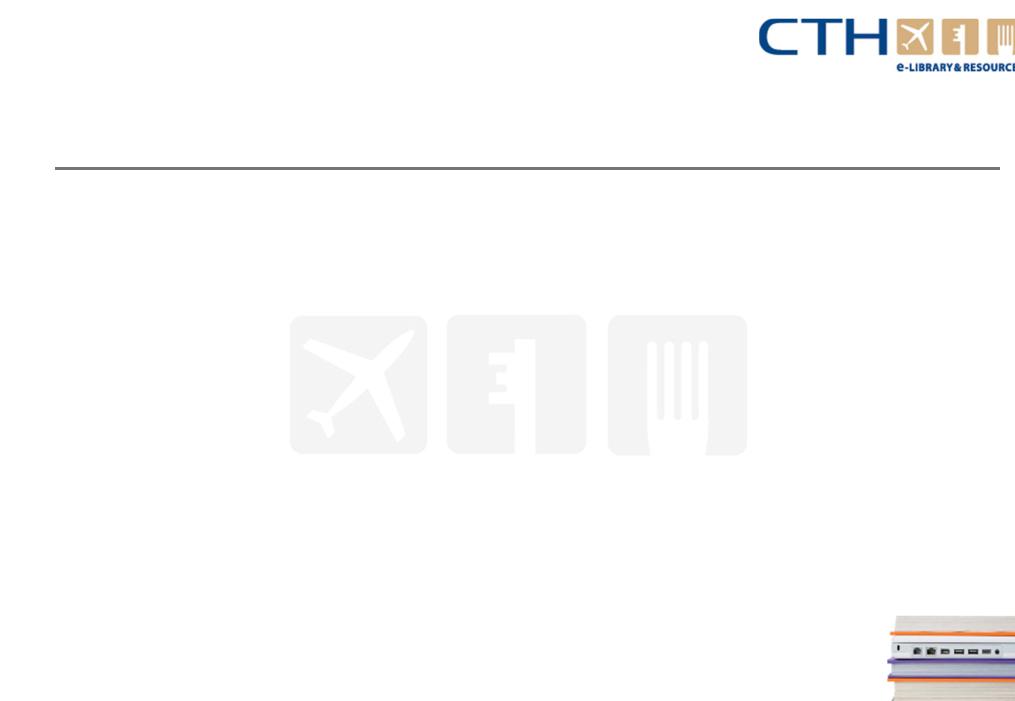
Chapter 9 – Interpersonal and selling skills
Selling skills and techniques
4.3 Sales support materials
Selling involves the effective use of sales support materials: promotional and informational literature which supports personal selling by offering guests information, advertising benefits, showing illustrative pictures - and giving contact details for follow-up.
Brochures, and lists of hotel services and amenities, are often available and offered to customers to take away and peruse at their leisure. Service/sales staff may also attach or offer their hotel business cards, facilitating the prospective customer in following-up the enquiry, and
emphasising personal service.
www.cthresources.com |
Page 515 |
|
www.cthawards.com |

Chapter 9 – Interpersonal and selling skills
Selling skills and techniques
4.4 Selling techniques
The following are some simple approaches for intelligent selling of hotel services and facilities.
●Start with rapport. There is an influencing technique called 'pace and lead' which means that you have to 'draw alongside' someone (make them feel understood and secure) before you 'draw ahead' of them and lead them in the direction you want them to go. Make guests feel welcome and secure first: they will then trust you to suggest options/alternatives, or to advise them well and in their best interests.
●Sell the whole 'package'. customers are not just buying rooms - they are buying hospitality, security, status, comfort etc. Your manner, and your ability to build rapport, are a powerful sample of the total service and hospitality package. In addition, you can describe services and facilities in terms that appeal directly to what you anticipate the guest to be interested in. Use appealing descriptive phrases when referring to rooms: 'an air-conditioned room', 'a comfortable/spacious room with beautiful city views'
www.cthresources.com |
Page 516 |
|
www.cthawards.com |
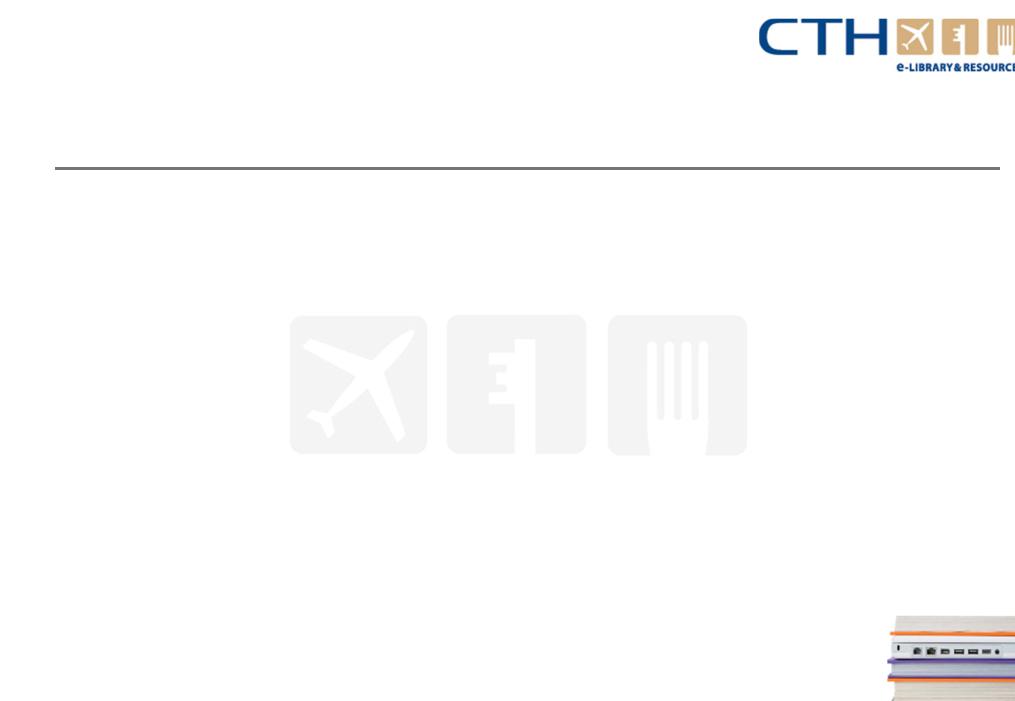
Chapter 9 – Interpersonal and selling skills
Selling skills and techniques
4.4 Selling techniques continued…
●Pace the transaction. Selling has a natural 'shape' or rhythm to it that supports your aims. It is natural to ask the guest whether he wants to purchase or make a booking (inviting): you have already made it easy to say yes; by putting together an offer that meets his stated needs.
●Another simple framework for selling discussions is ODD: Opening, Development, Dealing with hesitation. If someone calls to make a reservation enquiry, start by simply informing them of the room types you have, and their prices (opening). This leads naturally to questions about the rooms and their facilities, which provides a lead-in to describe them further, stressing the attributes most likely to appeal to the guest (development). By this stage, the guest may be half persuaded, but reluctant to commit for some reason: the price may be too high, or the facilities not quite right. Armed with this information, you can take action to get over the potential objection (dealing with hesitation): (e.g.. you might offer the opportunity to inspect the room (answering doubts as to its suitability); or might offer alternative options; or might stress the value for money represented by the 'best available rate‘).
www.cthresources.com |
Page 517 |
|
www.cthawards.com |

Chapter 9 – Interpersonal and selling skills
Selling skills and techniques
4.4 Selling techniques continued…
●Emphasise value for money. If you are trying to persuade a guest to upgrade to a superior grade (higher-rate) room, you need to justify the extra expense, by explaining or demonstrating the benefits gained for the extra money. (Know why the 'superior' is more desirable/expensive than the 'standard', or why a double may be more comfortable for the guest than a single.)
● Use 'good news'. (e.g.. the only available room is a twin not a double, or you can only offer full rack rate for that period. You want to cushion this fact and major on 'good news' that will attract a sale. Start with some good news (e.g.. 'Well, Sir, you're in luck: we do have a room available.'); then deliver the bad news ('It is only a twin room.. .'); and finish with the bright side ('... but it is more spacious than the double, with fine views over the city')
●Use price psychology. If you offer a guest the 'best available rate', it will sound like a competitive price or a bargain (even if the best available rate is rack rate). You might also quote a very high priced option alongside the alternatives, to make those prices ‘look better': people will often go for the secondhighest price, because they feel they are getting superior quality, but at a reasonable (not the highest) price.
www.cthresources.com |
Page 518 |
|
www.cthawards.com |
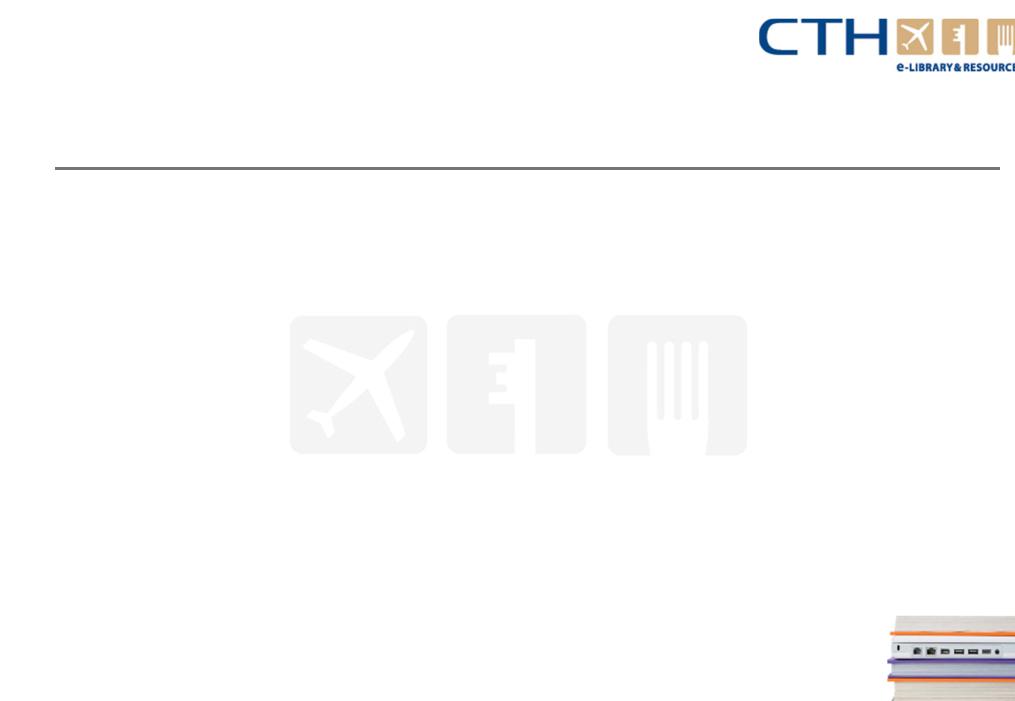
Chapter 9 – Interpersonal and selling skills
Selling skills and techniques
4.4 Selling techniques continued…
●Offer 'lead in' rooms: also called 'selling high' or 'top down' selling. Say someone rings up to enquire about a double room, and the hotel has standard doubles for £80 and superior doubles for £95. Start by quoting the higher-rate option first ('We have some lovely double rooms available for £95'): if the guest goes for it, you have made a higher-value sale. It is easy to come down to lower-rate options if the guest isn't willing to pay that much ('of course, we also have some slightly smaller rooms for £80, without quite as many amenities, but just as comfortable'). It is less easy to convince the guest to consider the superior, once (s)he has ‘already settled on a standard: far more conspicuous selling!
●If guests are clearly budget-conscious, however, a 'bottom-up' selling (or 'selling low') technique may be more effective, quoting high may put them off straight away. Instead, you could start with the cheapest grade/rate of room, to secure the sale - and then inform the guest that for a small amount extra, they could have more space or amenities: emphasising the upgrade as a value for money option.
www.cthresources.com |
Page 519 |
|
www.cthawards.com |
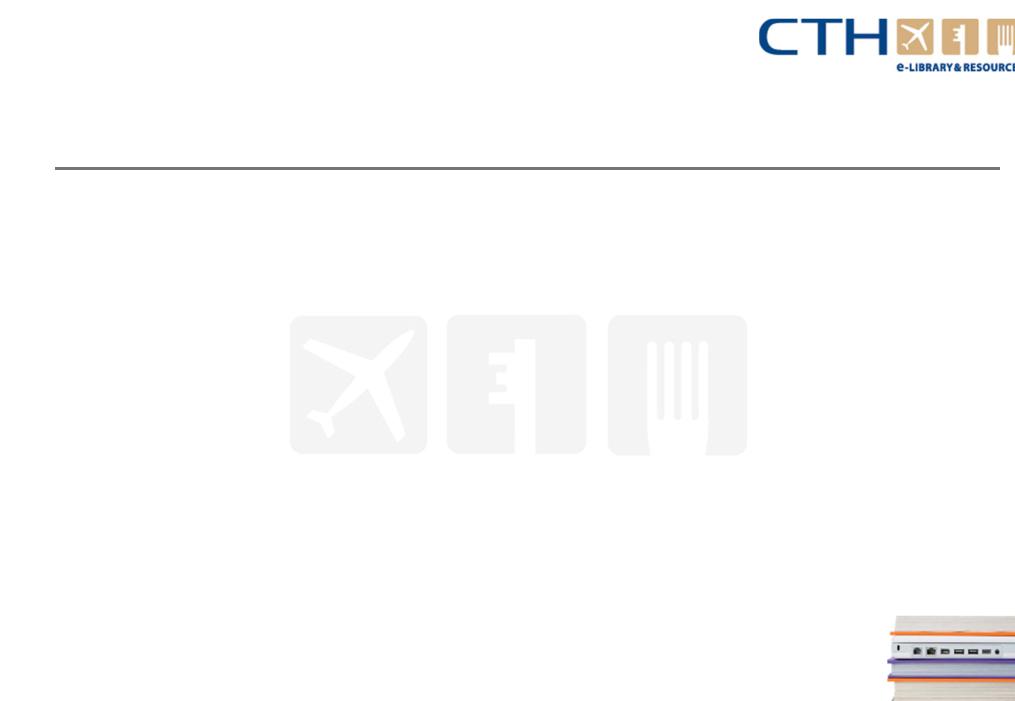
Chapter 9 – Interpersonal and selling skills
Selling skills and techniques
4.4 Selling techniques continued…
●Encourage sight/trial. Experience is the most powerful convincer. If a guest isn't sure that a more expensive room is better, offer to show him - whether in a photograph/brochure, or by referral (of a phone enquiry) to a virtual tour on the web site, or by showing a walk-in guest the room. Similarly, the hotel may offer incentives to try the hotel restaurant (e.g.. a voucher), in order to get guests in the door.
●Lead the decision. An uncommitted enquirer can be subtly steered towards a purchase decision by the sales person's 'assuming' that such a decision is being made. (e.g.. having offered a room, you might ask 'Is that acceptable?' (rather than 'would you like to make a reservation now?'). If the prospective guest says 'yes' (because the room is broadly what he was after), you can start to ask questions about anticipated arrival times, the guest's contact telephone number, how the guest would like to pay for the room etc. By this time, the reservation is well on the way to being made - and you have been so friendly and helpful, that the guest may not mind being 'nudged' to a decision in this way).
www.cthresources.com |
Page 520 |
|
www.cthawards.com |
